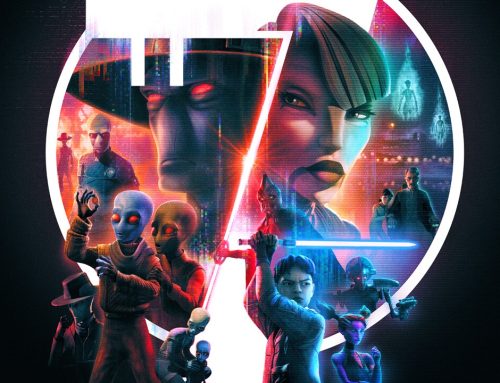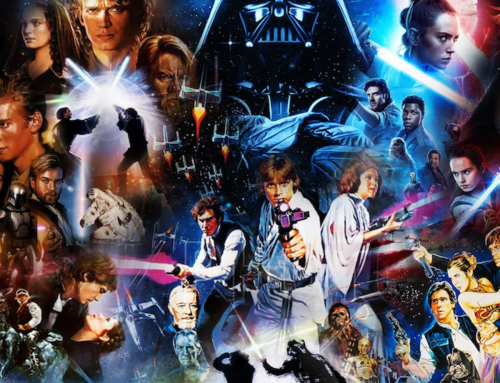Science Fiction and Why It’s Great, Part 4
So far we’ve talked about some big reasons why science fiction is great, and in every article I’ve made a point of asking readers to look past the absurdities of the science fiction fringe and focus on the strength of the core. But now I want to invite all that ridiculousness to the party – let’s talk about the Klingon university courses, the sleeping outside movie theatres for days, the pointy ears, the little green men, the freakish ability to quote movie lines and the whole range of absurdities that are a huge part of sci-fi. Although purists may shudder and closet-geeks may cringe, all that wacky weirdness is one of the things that makes science fiction great. So let’s get it out there.
Science fiction was always a bit quirky, even in what many consider to be its heyday in the 50’s and 60’s. There were no big conventions back then and no fictional languages being taught in community colleges, but I’m pretty sure it wasn’t the guys on the high school football team who were picking up the latest copy of Analog or Amazing Stories. Right from the beginning, science fiction found its home away from the popular limelight, and as the size of the sci-fi subculture grew so diminished its likelihood of ever being cool.
In the late 60’s a revolutionary TV show started to change that. Star Trek, undermined by its own network and unceremoniously dumped after three seasons, did something remarkable. It actually grew in popularity even after it was cancelled. People loved it so much they started to meet in groups to talk about it. Authors started writing new stories to keep the adventure alive. And then, in 1972, there was an event called a “Star Trek convention” where cast and crew from the show actually turned up to meet with fans and talk about this fictional universe that was supposed to be dead but was very much alive. Although hardly the first science fiction convention (the very first can be dated back all the way to the 30’s), the sheer passion that fueled the Star Trek movement took the convention concept to a whole new level.
And then in 1977 another work of science fiction changed our culture forever. Star Wars exploded across our collective consciousness and, for a brief, glorious moment, made science fiction not only mainstream, but incredibly cool. I was 4 years old, and Star Wars was the first feature-length movie I ever saw. My parents say that my brother and I didn’t blink for two hours, and I can state with conviction that my entire childhood was dominated by that galaxy far, far away.
From these two cultural colossi comes pretty much all the weirdness that sci-fi is so well-known for. By the 80’s the idea of the sci-fi convention had grabbed hold, giving rise to vast venues where fans of everything from Voyage to the Centre of the Earth to V could meet, discuss, debate and buy collectibles, in total safety from muscle-bound bullies and beautiful women. (Okay, okay, perhaps an exaggeration: some very muscular guys were sci-fi fans too.) This sub-culture, for so long underground and in hiding, had been primed by Star Trek and liberated by Star Wars, and now it was free to go absolutely crazy. Costumes, action figures, comic-book adaptations, posters, china sets… A multi-billion dollar industry in collectibles was spawned, and sci-fi fanatics felt comfortable going loud and proud.
But …
But alongside all this fun and absurdity, despite science fiction moving in popular perception from being a mildly-nerdy but otherwise inoffensive genre to being a lunatic fringe of crazies who wanted to form a new society based on the United Federation of Planets, the core of what made science fiction great never changed. Science fiction continued to produce fascinating, intelligent and challenging works of literature that stand shoulder to shoulder with the best of human creativity. Science fiction is more diverse than any other genre. It’s still grounded firmly in the real science that has created our modern world. It produces thought-provoking, allegorical commentary on fundamental issues of the human condition. Some of the finest novels, movies and TV shows of the past thirty years are within the realm of science fiction and no amount of silliness at the fringe has changed that. I challenge you to name me another genre of fiction that can simultaneously be so intelligent and so incredibly silly and pull off both with such conviction and panache.
And best of all, science fiction can even laugh at itself. One of the most-watched TV shows of the past decade is The Big Bang Theory, which followed the hilarious misadventures of four uber-nerdy physicists. A half-dozen or more (often quite obscure) references to sci-fi culture are made in each episode and the main thrust of the show’s humour is making fun of sci-fi geeks. But I don’t know a single sci-fi fan who is offended – indeed most of us are huge fans of the show.
Science fiction is a diverse, established genre with a long pedigree of excellence coupled with a lighter side that allows for fun and even self-mockery. In other words, science fiction is well-travelled, mature, intelligent and has a great sense of humour – sounds to me like the very definition of cool. And that, my fellow X-wing pilots, students of Kolinahr, browncoats, dinosaur hunters and conspiracy theorists, is why science fiction is great.






